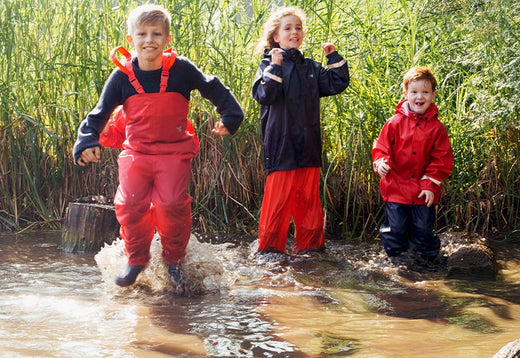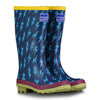
The Pros and Cons of Forest School
What are the Pros and Cons of Forest School?
Forest School is on the rise. In recent years there has been the rise and rise of Forest School and alongside of this an enormous increase in outdoor learning in primary schools and nurseries across the UK. As this is likely to be an option in an area near you then we thought it would be helpful to outline the main advantages and disadvantages of Forest School.

Some of the pros of forest school
1) Independent children
It creates resilient, independent learners as a lot of forest school techniques develop curiosity and processes for answering your own questions.
2) Improving focus
It is wonderful for younger children who struggle to focus and concentrate in the confines of the classroom as their entire surroundings are the classroom which enables a much more active way to learn. There is a lot of anecdotal evidence on behavioural issues improving or even disappearing.
3) Building confidence
It is fantastic for building confidence, as a natural part of the forest school is to assess and take risks and then overcome them which gives children of their own capabilities and helps them believe in themselves.
4) Social skills
Children in Forest Schools have to work and learn together with their peers. They face complex problems which they have to solve, they assess risks and decide if to take them in the safe social environment of the group. This way they learn about building relationships and develop a sense of community.
5) Healthy bodies
It is excellent for healthy bodies as it ensures children are physically active throughout the day. With the current obesity epidemic, this is a great benefit as Forest School children enjoy more exercise and less sedentary learning than their peers.

Some of the cons of forest school
1) The weather
It can be tough and challenging on bitterly cold days as children spend every day outside, rain or shine (we did hear from some of our lovely Forest School leaders that they also visit museums if the weather gets really bad). Plus, with the right forest school waterproofs and wellies your little ones can have fun whatever the weather.
2) It doesn't suit all children
It is not for all children. Like any parent choosing a school, make sure you visit your local forest school and assess if you think it will suit your child.
3) Safety and hygiene
As children spend time outdoors, they move around more, climbing trees and jumping in puddles (which we totally support by the way!), and there is a slightly bigger chance that they will get injured. They are also more exposed to potential germs, however both of these risks are closely managed by forest schools.
4) Adapting to 'normal' school
We have heard anecdotally from one or two parents that it can lead to some small challenges when children have to adapt back in to ‘normal’ school routines and processes (although there is no research to support this and it is certainly not a common problem). The first important point to make before drawing up a list is the distinct difference between Forest School and outdoor learning. Forest School is a very specific pedagogy with a clear approach to child development and learning. It is an ongoing long-term process for a child where they learn in a natural environment in a very independent child-led method. Outdoor learning is normally an experience children have in nursery or school for a session of outside time that is inspired by the methods and techniques used every day in forest school.

Despite these points, we are strong believers that these pros outweigh the cons, and Forest School is a brilliant way to encourage children to spend time outdoors. Whenever we speak to our lovely forest school customers whether they are forest school leaders or parents who have made the choice of forest school for their children then we are always impressed about the passion with which they speak about the pleasure and benefit the children have received from the experience.
If you want to find out more about forest school and its values then you can visit the Forest School Association. It also has a great directory of forest schools across the UK so that you can find the one that is nearest to you.


















